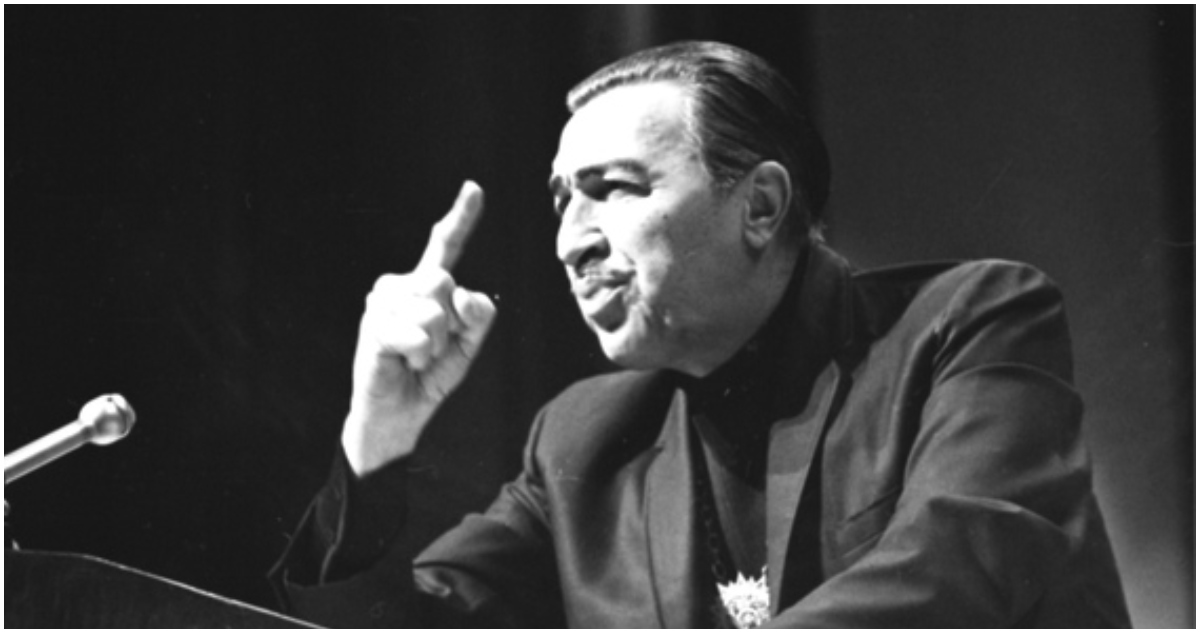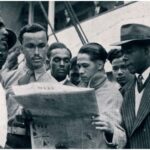A Trailblazer in Politics and Civil Rights
Adam Clayton Powell Jr. made history in 1944 when he became the first Black congressman from New York. He was a powerful voice for civil rights and social justice, using his position in Congress to challenge segregation and discrimination. As the chairman of the House Education and Labor Committee, he played a key role in passing progressive laws that shaped modern America.
Powell’s legacy goes beyond politics. He was an outspoken advocate for racial equality and an expert strategist in the fight against discrimination. His legislative efforts, including the Powell Amendment, set the foundation for major civil rights laws like the Civil Rights Act of 1964.
Early Life and Rise to Leadership
Born on November 29, 1908, in New Haven, Connecticut, Powell grew up in Harlem, New York. His father was the pastor of Abyssinian Baptist Church, one of the most influential Black churches in the country. After graduating from Colgate University in 1930, he earned a master’s degree from Columbia University and followed in his father’s footsteps as a pastor.
At Abyssinian Baptist Church, Powell used the pulpit as a platform for activism. He organized the “Don’t Buy Where You Can’t Work” campaign, pressuring businesses to hire Black employees. His leadership in Harlem led to his election to the New York City Council in 1941, making him the first African American to hold that position.
Fighting for Equality in Congress
Powell’s election to the U.S. House of Representatives in 1944 marked a turning point for Black political power. He immediately began pushing for civil rights reforms. In 1950, he introduced a rider to federal funding bills, known as the Powell Amendment, which aimed to cut off funding to segregated institutions. While it did not pass initially, its ideas were later included in the landmark Civil Rights Act of 1964.
In 1956, Powell urged President Dwight D. Eisenhower to support the Montgomery Bus Boycott and protect Black activists facing arrest. He also played a key role in the War on Poverty programs under President Lyndon B. Johnson, which expanded access to education, jobs, and healthcare for millions of Americans.
Clashes with Martin Luther King Jr.
Despite their shared commitment to civil rights, Powell and Martin Luther King Jr. had a complicated relationship. They worked together on several initiatives, including the Southern Christian Leadership Conference (SCLC) and the Ghana independence celebrations in 1957. However, tensions grew in 1960 when Powell threatened to spread false rumors about King’s relationship with his advisor Bayard Rustin unless King canceled a protest at the Democratic National Convention.
King chose not to escalate the conflict, writing to Powell, “I will hold nothing in my heart against you and I will not go to the press to answer or condemn you.” Despite this, their relationship continued to weaken. In 1968, Powell publicly rejected nonviolence, declaring, “The day of Martin Luther King has come to an end.” Less than two weeks later, King was assassinated.
Scandals and Congressional Expulsion
Powell’s career was not without controversy. He faced multiple accusations of financial misconduct, including tax evasion and misuse of government funds. In 1967, the House of Representatives voted to expel him. He challenged the decision and won a special election to reclaim his seat, but Congress refused to let him serve.
In 1969, the U.S. Supreme Court ruled that Powell’s expulsion was unconstitutional. He was reinstated but stripped of his seniority. He lost his seat in 1970 to Charles Rangel and retired from politics. Powell passed away on April 4, 1972, leaving behind a legacy of fearless advocacy and groundbreaking achievements.
Legacy and Impact on U.S. Law
Powell’s influence remains visible in U.S. law and civil rights history. His leadership helped shape federal policies on education, labor, and racial equality. His relentless fight against segregation paved the way for future Black lawmakers.
His name may not be as widely recognized as some civil rights leaders, but his contributions were crucial. Without his efforts, many of the civil rights protections in place today might not exist. Powell’s legacy serves as a reminder of the power of activism and the importance of standing up for justice.





